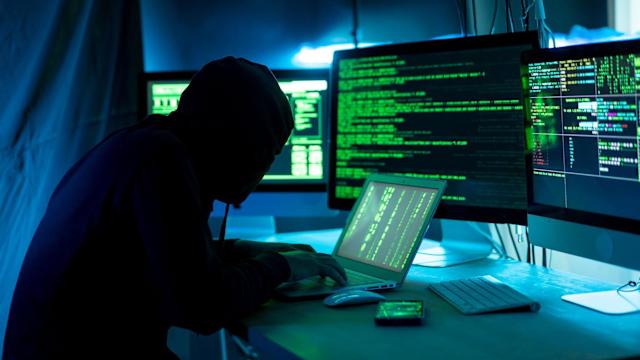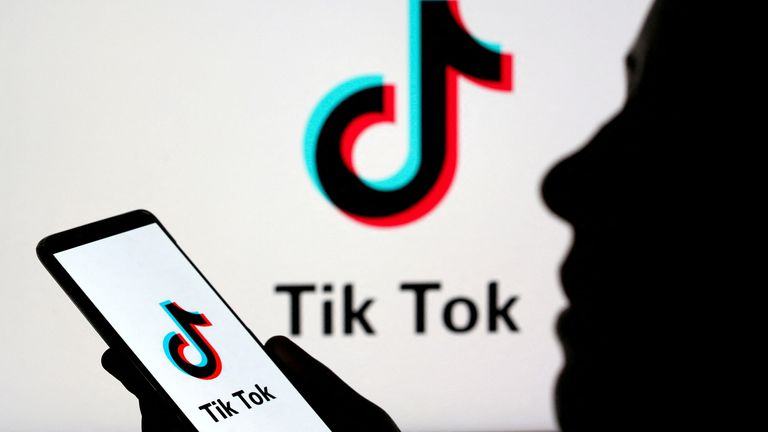In a digital era where luxury fashion brands symbolize more than just wealth and style, cybercriminals have now turned their attention to high-end fashion houses as prime targets. Recently, Gucci, Balenciaga, and Alexander McQueen—three of the world’s most recognizable luxury labels—found themselves caught in the crosshairs of a sophisticated ransomware attack.
- The Ransomware Attack on Luxury Fashion Brands
- Why Luxury Fashion is a Target for Cybercriminals
- The Rise of Ransomware in the Global Economy
- The Potential Fallout for Gucci, Balenciaga, and Alexander McQueen
- Expert Opinions on the Breach
- How Hackers Exploit Weaknesses in Fashion’s Digital Ecosystem
- The Global Luxury Industry Under Threat
- Steps Luxury Brands Can Take to Strengthen Cybersecurity
- The Role of Governments and Regulations
- Public Reaction and Consumer Concerns
- The Future of Cybersecurity in Luxury Fashion
- FAQs
- What data did hackers steal from Gucci, Balenciaga, and Alexander McQueen?
- Did the brands pay the ransom?
- Why are luxury fashion brands targeted by hackers?
- What are the risks to customers of these brands?
- Has this happened to other fashion brands before?
- Conclusion
Hackers claimed to have stolen sensitive data belonging to these iconic brands and are now demanding ransom in exchange for not leaking it publicly. This cyberattack raises alarming questions about the vulnerability of global luxury brands, the risks to their clients and partners, and the growing threat of ransomware across industries.
The incident does not only highlight the fragility of digital security even in elite companies but also illustrates the expanding scope of cybercrime. Luxury fashion, once considered an untouchable fortress of exclusivity, is now a battlefield where data, reputation, and billions of dollars are at stake. As investigations continue, experts warn that the ransomware crisis affecting Gucci, Balenciaga, and Alexander McQueen could reshape the future of cybersecurity in the fashion industry.
The Ransomware Attack on Luxury Fashion Brands
According to multiple cybersecurity sources, hackers infiltrated systems connected to Gucci, Balenciaga, and Alexander McQueen and extracted a significant cache of data. Reports suggest that the stolen files may include financial records, internal communications, product designs, supply chain documents, and possibly even employee or customer information. The attackers are demanding a ransom, threatening to release the data on dark web forums if the payment is not made.
While none of the brands have yet issued a detailed public statement, industry insiders fear the consequences could be severe. For luxury fashion houses, where exclusivity, secrecy, and brand image are paramount, a leak of sensitive designs or financial strategies could inflict long-term damage. Cybersecurity experts emphasize that fashion brands are now as vulnerable as banks and technology firms, especially as they hold troves of intellectual property worth millions.
Why Luxury Fashion is a Target for Cybercriminals
Luxury brands like Gucci, Balenciaga, and Alexander McQueen operate in a space where image, innovation, and exclusivity determine value. But what many overlook is that behind the glittering runways and celebrity endorsements lies a massive digital infrastructure that powers these companies. This includes global supply chains, e-commerce platforms, digital design archives, and customer databases filled with high-net-worth individuals’ information.
Hackers are attracted to this data for several reasons. First, the intellectual property—ranging from design blueprints to unreleased collections—is highly valuable on black markets. Competitors or counterfeit operations could exploit such data for profit. Second, customer data associated with luxury buyers can be used in identity theft, fraud, or blackmail schemes. Third, brands are pressured to protect their reputation, making them more likely to consider paying ransom demands to prevent damaging leaks.
The Rise of Ransomware in the Global Economy
Ransomware has become one of the most lucrative tools for cybercriminals, with attacks increasing year after year. According to a report by cybersecurity firm CrowdStrike, ransomware incidents surged by more than 70 percent globally over the last two years. Hackers no longer target only financial institutions or government bodies; they now go after healthcare, education, entertainment, and luxury industries.
Fashion brands are particularly attractive because of their reliance on secrecy. A leaked design could ruin a collection months before a fashion show. A leaked list of wealthy clients could make those individuals vulnerable to scams. Hackers understand this leverage and use it to demand multi-million-dollar payments.
The Potential Fallout for Gucci, Balenciaga, and Alexander McQueen
The implications of this data breach go beyond immediate financial losses. For Gucci, Balenciaga, and Alexander McQueen, the real risk lies in long-term brand trust. Luxury consumers expect discretion, prestige, and flawless reputation from the brands they patronize. Any sign of weakness or negligence in protecting client data could tarnish this trust.
Moreover, intellectual property theft could result in counterfeit markets flourishing even further. The global counterfeit fashion industry is already estimated to cost luxury brands over $30 billion annually. If hackers release authentic designs or product strategies, counterfeiters could replicate future collections before they even hit official runways. This would undermine exclusivity and dilute the brand’s prestige.
Expert Opinions on the Breach
Cybersecurity experts warn that the fashion industry has not invested in digital security at the same level as industries like banking or healthcare. Dr. Elena Rossi, a cybersecurity researcher in Milan, explained, “Luxury brands have poured resources into protecting their physical stores and exclusive events but underestimated digital threats. This incident is a wake-up call for the entire industry.”
A senior consultant from KPMG added, “Brands like Gucci and Balenciaga are prime targets not just because of the data they hold, but because their reputation makes them vulnerable to extortion. A single leak of client information could lead to legal battles, regulatory penalties, and irreparable brand damage.”
How Hackers Exploit Weaknesses in Fashion’s Digital Ecosystem
Most luxury fashion houses now operate global online platforms that sell products directly to consumers. They collaborate with hundreds of suppliers, contractors, and designers across continents. This creates a sprawling digital ecosystem with multiple points of vulnerability. Hackers often gain access through phishing emails, compromised vendor accounts, or poorly secured cloud databases.
One of the biggest risks lies in third-party suppliers. Many suppliers may not maintain the same cybersecurity standards as major fashion houses, making them the weakest link. Once hackers infiltrate a supplier, they can move laterally into the fashion brand’s main network.
The Global Luxury Industry Under Threat
The luxury fashion industry, valued at over $300 billion globally, has become increasingly digitized over the past decade. With the rise of online luxury retail, digital design archives, and high-value supply chain data, hackers now see fashion as fertile ground for cybercrime.
This attack on Gucci, Balenciaga, and Alexander McQueen is not an isolated case. In 2020, Italian luxury brand Moncler suffered a ransomware attack where data was leaked after the company refused to pay. Similarly, last year, a French luxury conglomerate faced attempted ransomware extortion, though it managed to contain the breach. The growing trend suggests that ransomware will remain a recurring challenge for the fashion world.
Steps Luxury Brands Can Take to Strengthen Cybersecurity
Experts recommend several steps luxury brands must take to avoid becoming easy targets:
- Invest in robust cybersecurity infrastructure – Brands must allocate more resources toward advanced security software, intrusion detection systems, and data encryption.
- Secure third-party vendors – Supply chains must be audited to ensure that all partners maintain strong cybersecurity measures.
- Employee training – Many breaches start with human error. Staff across all levels must be trained to recognize phishing attacks and suspicious activity.
- Incident response planning – Brands should develop detailed plans to respond quickly and minimize damage during cyberattacks.
- Client data protection – Sensitive customer information should be encrypted and stored with the highest levels of security.
The Role of Governments and Regulations
Governments are also stepping in to regulate cybersecurity practices in industries like finance and healthcare, but luxury fashion has so far avoided stringent oversight. This attack could trigger new conversations about regulatory frameworks for protecting consumer data in high-value industries. Laws such as Europe’s GDPR already impose heavy penalties for data breaches, and luxury brands operating globally may face lawsuits and fines if negligence is proven.
Public Reaction and Consumer Concerns
Consumers have reacted with unease to the news of hackers targeting Gucci, Balenciaga, and Alexander McQueen. For many loyal clients, luxury fashion is not just about clothing but also about privacy, prestige, and security. A breach that exposes private purchases, contact information, or financial details could erode the sense of exclusivity these brands cultivate.
On social media, conversations are already surfacing, with many users asking whether luxury brands are truly safe in an increasingly digital world. The possibility of client data being exposed raises concerns not only about identity theft but also about the loss of trust in brands that rely heavily on customer loyalty.
The Future of Cybersecurity in Luxury Fashion
The Gucci, Balenciaga, and Alexander McQueen ransomware case underscores a larger trend: cybersecurity is no longer optional but essential. As fashion moves deeper into digital innovation—whether through virtual fashion shows, NFTs, or metaverse projects—the attack surface for hackers will only expand.
Luxury brands must now see cybersecurity as part of their brand identity. Just as customers expect impeccable craftsmanship in a handbag, they will begin to demand impeccable digital protection for their personal data. The brands that adapt quickly and invest in digital resilience will maintain their prestige, while those that fall behind risk losing not only data but also consumer trust.
FAQs
What data did hackers steal from Gucci, Balenciaga, and Alexander McQueen?
Reports suggest that hackers may have accessed internal financial records, unreleased design files, supply chain documents, and potentially sensitive employee or customer information.
Did the brands pay the ransom?
As of now, none of the brands have confirmed whether they will pay. Most experts warn against paying ransom since it encourages further attacks, but some companies choose to do so to protect sensitive data.
Why are luxury fashion brands targeted by hackers?
Luxury fashion brands hold valuable intellectual property, sensitive client information, and operate global supply chains. These factors make them prime targets for extortion and data theft.
What are the risks to customers of these brands?
If customer information is leaked, risks could include identity theft, fraud, or targeted scams. High-net-worth individuals are particularly vulnerable if their data is exposed.
Has this happened to other fashion brands before?
Yes, several luxury brands including Moncler have been targeted by ransomware in recent years, showing that the fashion industry is increasingly under threat from cybercriminals.
Conclusion
The ransomware attack targeting Gucci, Balenciaga, and Alexander McQueen serves as a stark reminder that no industry is immune to cybercrime. What began as a digital extortion attempt has now sparked a global conversation about the vulnerability of the luxury fashion industry. Beyond financial costs, the real risk lies in reputational damage, loss of consumer trust, and the potential for intellectual property theft that fuels counterfeit markets.
As hackers become more sophisticated, luxury brands must evolve beyond traditional notions of exclusivity and craftsmanship to embrace cybersecurity as part of their identity. The future of fashion will not only be determined on runways but also in digital fortresses where data and trust are safeguarded. For Gucci, Balenciaga, and Alexander McQueen, this crisis is both a challenge and an opportunity—to reinforce their resilience and set a new standard for security in the world of luxury.













